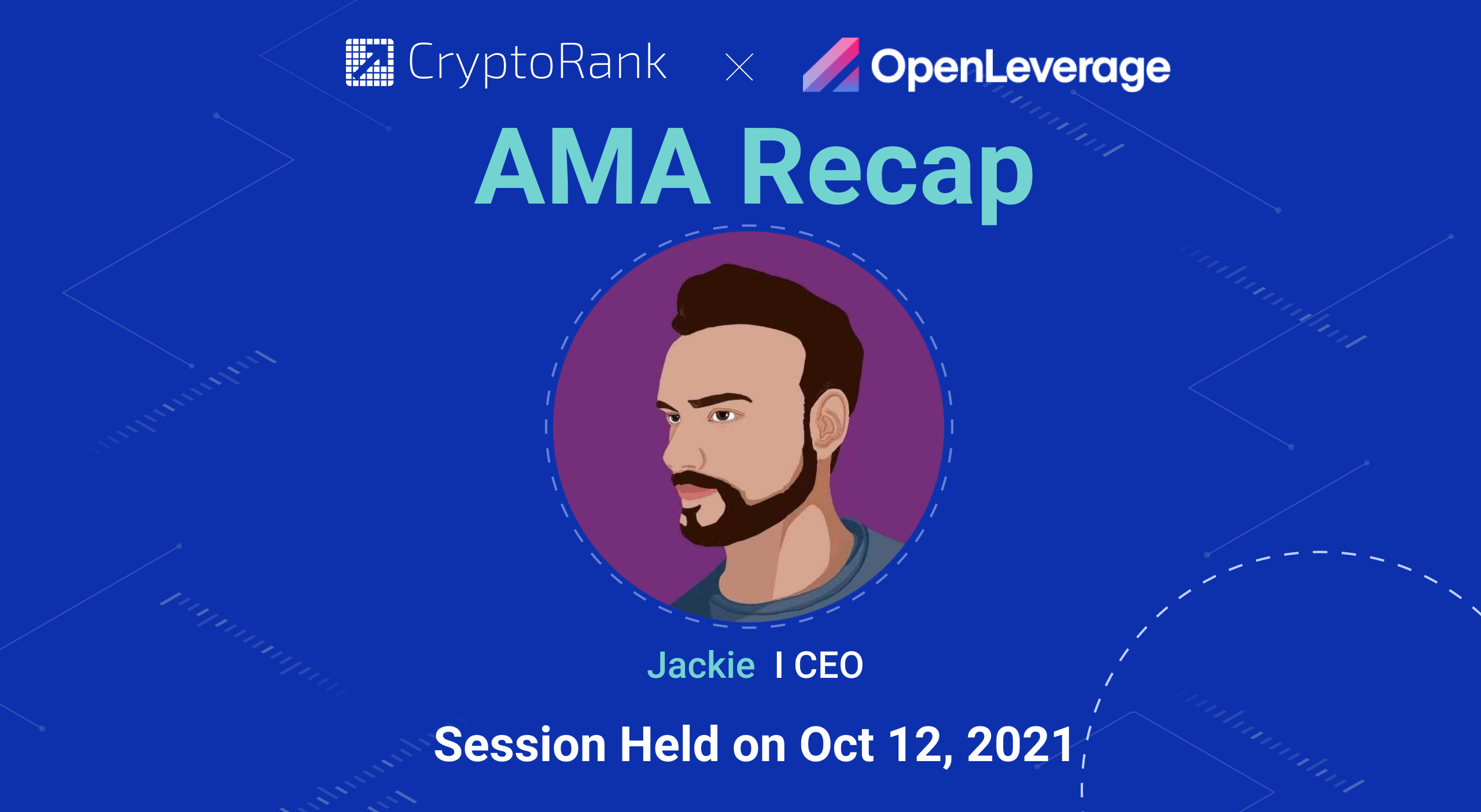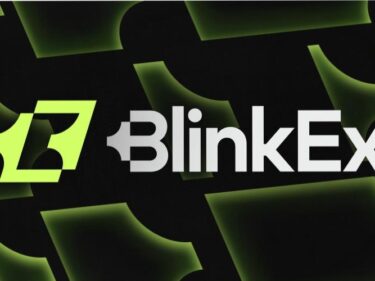OpenLeverage AMA Recap

OpenLeverage is a decentralized and permissionless Derivatives protocol, focusing on margin trading.
On October 12, Jackie, CEO of OpenLeverage joined us to answer our questions.
 Jackie, OpenLeverage CEO
Jackie, OpenLeverage CEO
I am a serial fintech entrepreneur and have 12 years+ of experience in derivatives trading, risk management, and blockchain-based financial system design. Before OpenLeverage, I founded a fintech company building a blockchain-based fintech solution for banks and enterprises.
Questions from the CryptoRank team
#1. Can you tell us a bit about OpenLeverage? What problems do you solve, both in the space and for the community?
Jackie: – OpenLeverage is a decentralized and permissionless Derivatives protocol, focusing on margin trading. It enables traders to be long or short any trading pair on DEXs efficiently and securely, with aggregated DEX Liquidity. We found that while margin trading is very common on centralized exchanges, it is still difficult to get a new project listed on any centralized platform that offers margin trading. Even Binance, the largest centralized exchange, still only supports about a hundred trading pairs with a margin out of the thousands of tokens they offer. Many projects are now opting to list on a Decentralized Exchange (DEX). However, there are still very few DEXs that support any margin trading, and the few that do only support a small number of tokens with margin due to reliance on oracle pricing. Therefore, to provide a margin trading facility for the emerging users on Dex, and also long-tail traders, we decide to develop this protocol. As long as the project’s tokens have liquidity on an existing DEX such as UniSwap, OpenLeverage allows anyone in the world to add leverage for trading without any permission.
#2. Could you briefly describe the milestones OpenLeverage has achieved, and about your upcoming plans?
Jackie: – OpenLeverage has received more than $1.8 million USD in seed round financing. Signum and LD Capital led the investment. We also received continuous support from FBG Capital, YBB Foundation, and Continue Capital. Lately, we have closed around 1 million from various KOL and communities across the world, and still looking for strategic investors. For the technical part, we have passed security auditing by Peckshield and Certick and deployed Testnet V2 on Ethereum Kovan testnet just yesterday. btw, we have a weekly mission available for every user to try out the new features.
In the community aspect, we have attracted a lot of attention globally, more specifically, on Testnet V1, more than 25,000 unique addresses participated in the testing, and more than 100,000 transactions were processed. I will give some intro for our testnet V2 features here as well:
- Integrated with both Uniswap V2 and V3 liquidity pools. The protocol now automatically sources to the best liquidity pools of Uniswap V2 or V3 on market creation to make sure to have the smallest slippage for trading and risk management.
- Introducing OnDemand Oracle to more effectively protect positions from price manipulation and flash loan attacks while enabling lending and margin trading for arbitrary pairs that have sufficient liquidity.
- The lending market page is upgraded to provide market risk info.
- Real-time market data directly from the chain. We built real-time price feeds to be illustrated on the TradingView price chart to ensure the price authenticity and reflect the real-time risk.
Questions from Twitter
#1. What are the various fees that are involved in opening a position? From executing a trade to fees charges to leaving a position open overnight to currency swap fees.
Jackie: – Basically, fees include protocol fees and Dex LP fees ( for instance, Uniswap LP fees), a portion of the fees would be spared as insurance funds.
#2. The permissionless nature of Decentralized Finance allows any tokens to be listed and trade but recently Uniswap also delisted few tokens. How will OpenLeverage deal with it as regulations come and will it affect you or we can trade any token?
Jackie: – We do comply with global government regulations, thus, we only support Dex tokens (which means that we follow Dex’s compliance). If the token has been delisted from Uniswap, it can not be traded in our protocol either. As I mentioned before, as long as the project’s tokens have liquidity on an existing DEX such as UniSwap, OpenLeverage allows anyone in the world to add leverage for trading without any permission.
#3. What are the benefits for Traders on OpenLeverage? And What about lenders can you tell how they will get rewarded?
Jackie: – We do believe that incentive is essential for community building, so we have rewards plan for both traders and lenders, it will go along with the token launch, not public yet.
Questions from Telegram
#1. How do you plan to spread awareness about your project in countries/regions where English is not spoken well like Indonesia, Vietnam, India, Bangladesh, and Iran, do you have local communities for them to make them better understand your project?
Jackie: – Crypto emerging countries are essential for us, we have got supported by the local community, media, and ventures already in the regions you mentioned, meanwhile, we are still looking for more partnerships.
#2. Why does OpenLeverage not rely on oracles from off-chain prices, and how does it leverage TWAP prices to create reliable price feeds that are updated based on commercial interest? What are the features between Testnet V1 and Testnet V2 and how do the protocol resources liquidity pools provide low slippage in trading and risk management?
Jackie: – OpenLeverage doesn’t rely on oracles that piping from off-chain prices. Instead, it makes use of TWAP prices provided by Uniswap (or its forks) to build reliable price feeds that are updated based on trading interest to avoid expensive or continual price feed maintenance. Traditional Oracle can only support very limited tokens, so we use TWAP instead, even Vitalik Buterin said Uniswap can be the next oracle facility by its nature.
#3. OpenLeverage is a newly launched project and in my opinion, has a lot of potentials. As for these new projects, there is also a lot of competition. So what advantages does OpenLeverage have compared to similar projects above?
Jackie: – We will have an article explaining the difference between DYDX and OpenLeverage, which will be posted on our Twitter soon.



